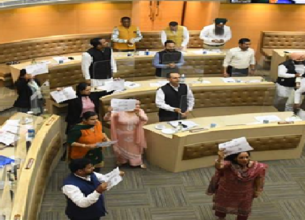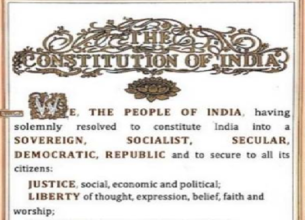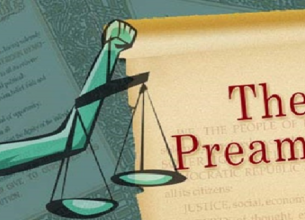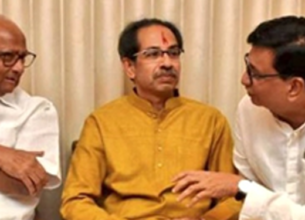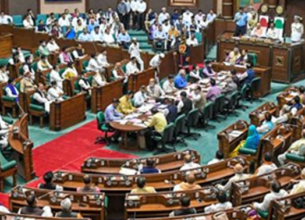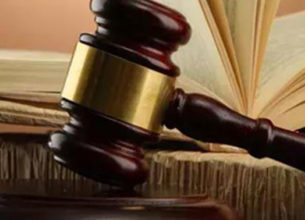RESTRUCTURING POWERS OF THE GOVERNORS
28, Nov 2019
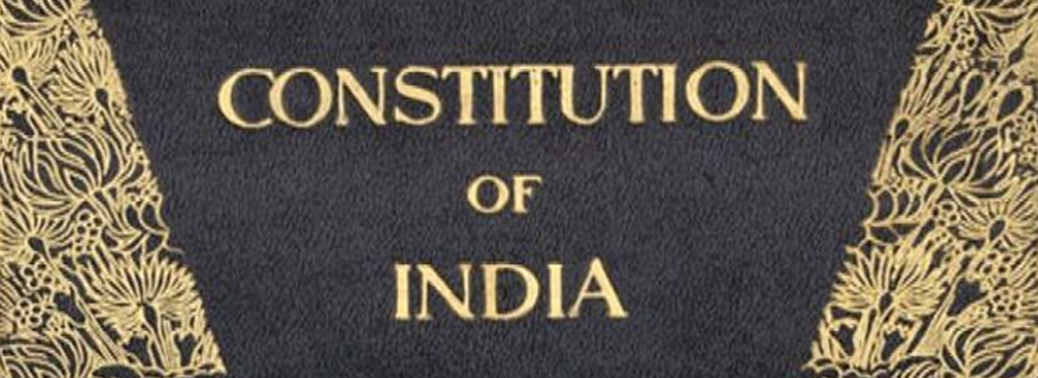
Prelims level : Polity
Mains level : GS-II Structure, organization and functioning of the Executive and the Judiciary Ministries and Departments of the Government; Pressure Groups and Formal/Informal Associations and their role in the Polity.
Why in News?
- The actions of the Governors of few states over the last few years have invited scrutiny on their Discretional Powers.
About:
- Being a constitutional head in the state, the Governors have executive, legislative, financial, judicial and discretionary powers.
- The most controversial powers of the Governor are the discretionary powers.
- The actions of few Governors of various states have called for scrutinizing their powers.
What does the Constitution say?
- The discretionary powers of Governor in state are much more extensive in comparison to the President in centre in India.
- For example, Article 163 of the constitution says that there shall be a Council of Ministers in the states with the Chief Minister at the head to aid and advise the Governor in exercise his functions, except those which are required to be done by the Governor on his/ her discretion.
- The constitution further mentions that if any question arises whether a matter falls within the Governor’s discretion or not, decision of the Governor shall be final, and the validity of anything done by the Governor shall not be called in question on the ground that he ought or ought not to have acted in his discretion.
- Moreover, what advice was tendered by the Governor to the Ministry cannot be inquired into a court.
Discretionary Powers of the Governor:
- Governor can dissolve the legislative assembly if the chief minister advices him to do following a vote of no confidence. Now, it is up to the Governor what he/ she would like to do.
- Governor, on his/ her discretion can recommend the president about the failure of the constitutional machinery in the state.
- On his/ her discretion, the Governor can reserve a bill passed by the state legislature for president’s assent.
- If there is NO political party with a clear cut majority in the assembly, Governor on his/ her discretion can appoint anybody as chief minister.
- Governor determines the amount payable by the Government of Assam, Meghalaya, Tripura and Mizoram to an autonomous Tribal District Council as royalty accruing from licenses for mineral exploration.
- Governor can seek information from the chief minister with regard to the administrative and legislative matters of the state.
- Governor has discretion to refuse to sign to an ordinary bill passed by the state legislature.
- Thus, though the Governor is made the constitutional head of a state like president of India, yet there is a thin line as the Constitution empowers the Governor to act without the advice of the Chief Minister and his council and can use discretion on certain matters.
Controversies regarding Governor’s Power:
- In April 1948, the Drafting Committee of the Constitution insisted on omitting all references to the discretionary powers of the Governor.
- On May 31, 1949, B.R. Ambedkar said in unequivocal terms that the Governor “is required to follow the advice of his Ministry in all matters”.
- However, it is trite that the Governor is required to exercise discretion in deciding the formation of government when there is no clear post-poll majority.
- Here, the cases of S.R. Bommai v. Union of India, Rameshwar Prasad v. Union of India, and Nabam Rebia v. Deputy Speaker provide unambiguous judicial guidance to how the office of the Governor must encounter tricky post-poll claims to form government and stay immune to political bias.Unfortunately, the appointment process of Governors has made the office vulnerable to the influence of the Union government.
- Over the years, occupants of this office have continued to look towards New Delhi for guidance.
Need for Reform:
- There is little doubt that the appointment and tenure of Governors need to undergo radical reform.
- The Justice P.V. Rajamannar Committee, which was tasked by the Tamil Nadu government to look into Centre-State relations in 1969, recommended that State governments be included in the appointment process of Governors to drastically reduce their discretionary powers.
- The call to rectify the imbalance in Centre-State equations must begin with such a reform.
- Furthermore, for too long, Governors have enjoyed a legal immunity, granted by the Constitution, on account of their sovereign functions.
- Over the years, the Supreme Court has confirmed its powers to review the actions of the Governors.
- Any decision of the Governor can be subjected to judicial scrutiny, including the materials placed to arrive at that decision.
- However, there is a compelling case that the Westminster model of sovereign and symbolic head of state is past its expiry date.
- The powers and privileges that are attached to the office of the Governor must be accompanied by answerability, transparency and accountability.
- Governors and their offices must be scrutinized as much as any other public office. The court can lay down guidelines in this regard.



